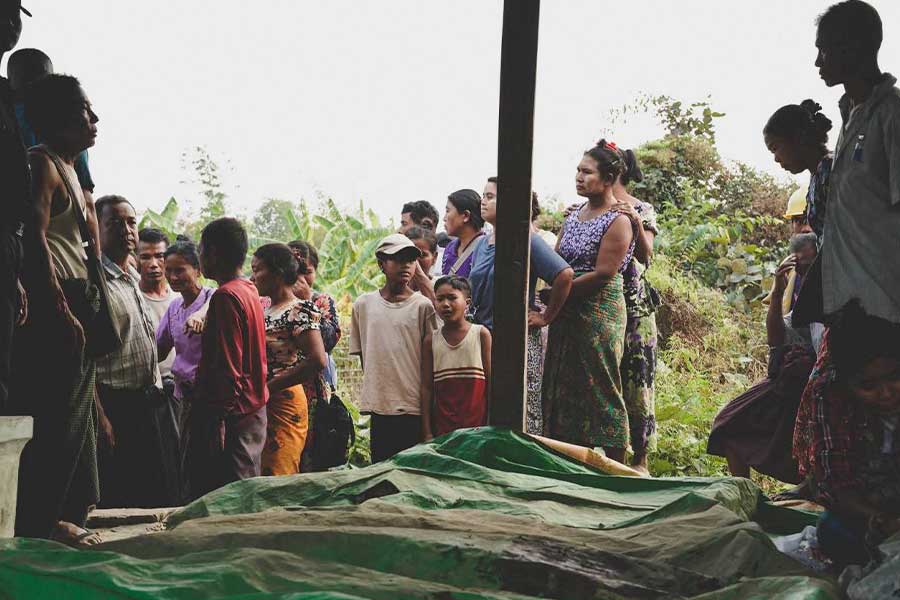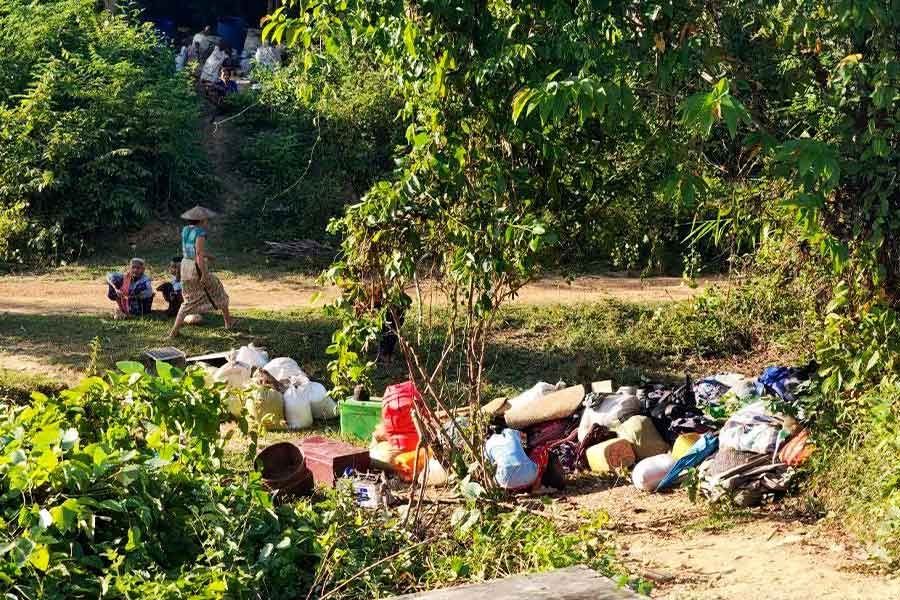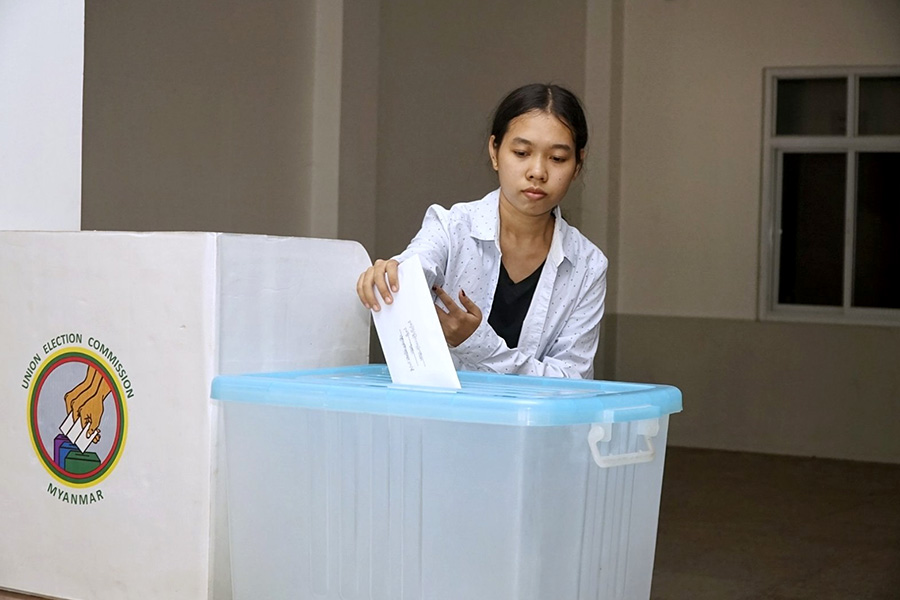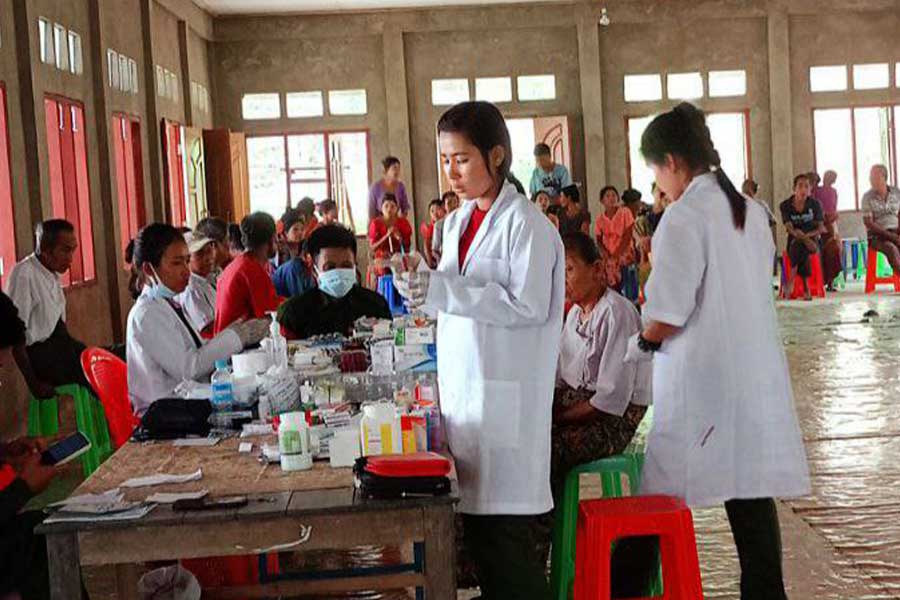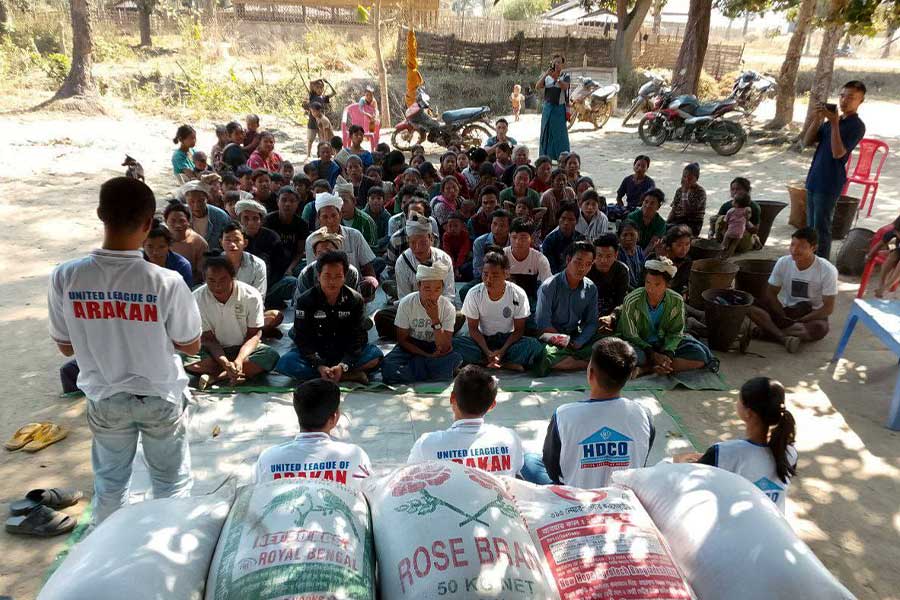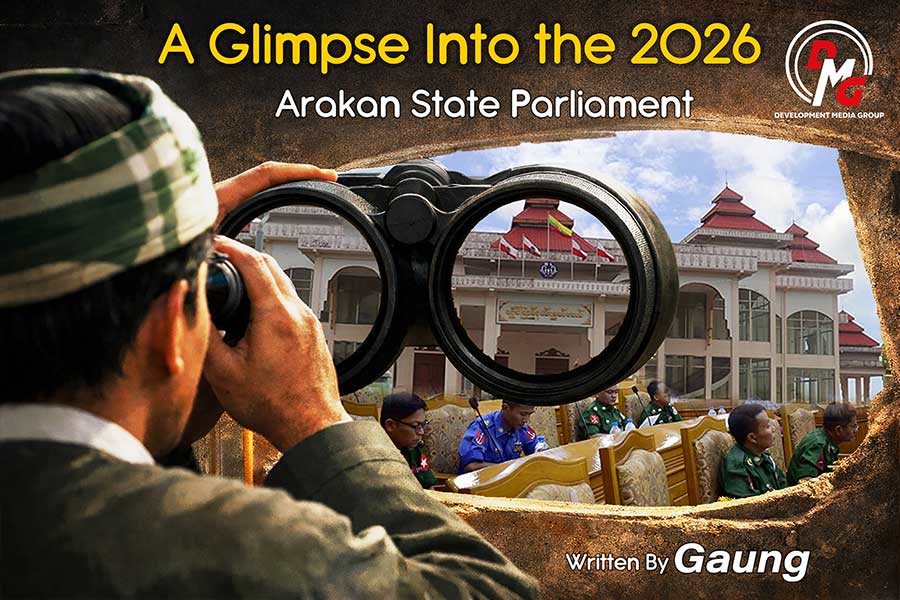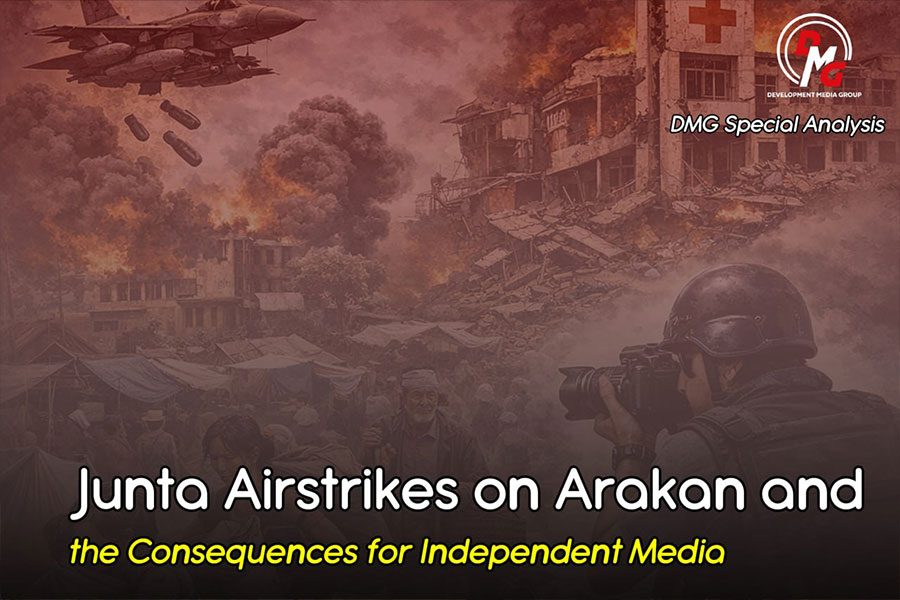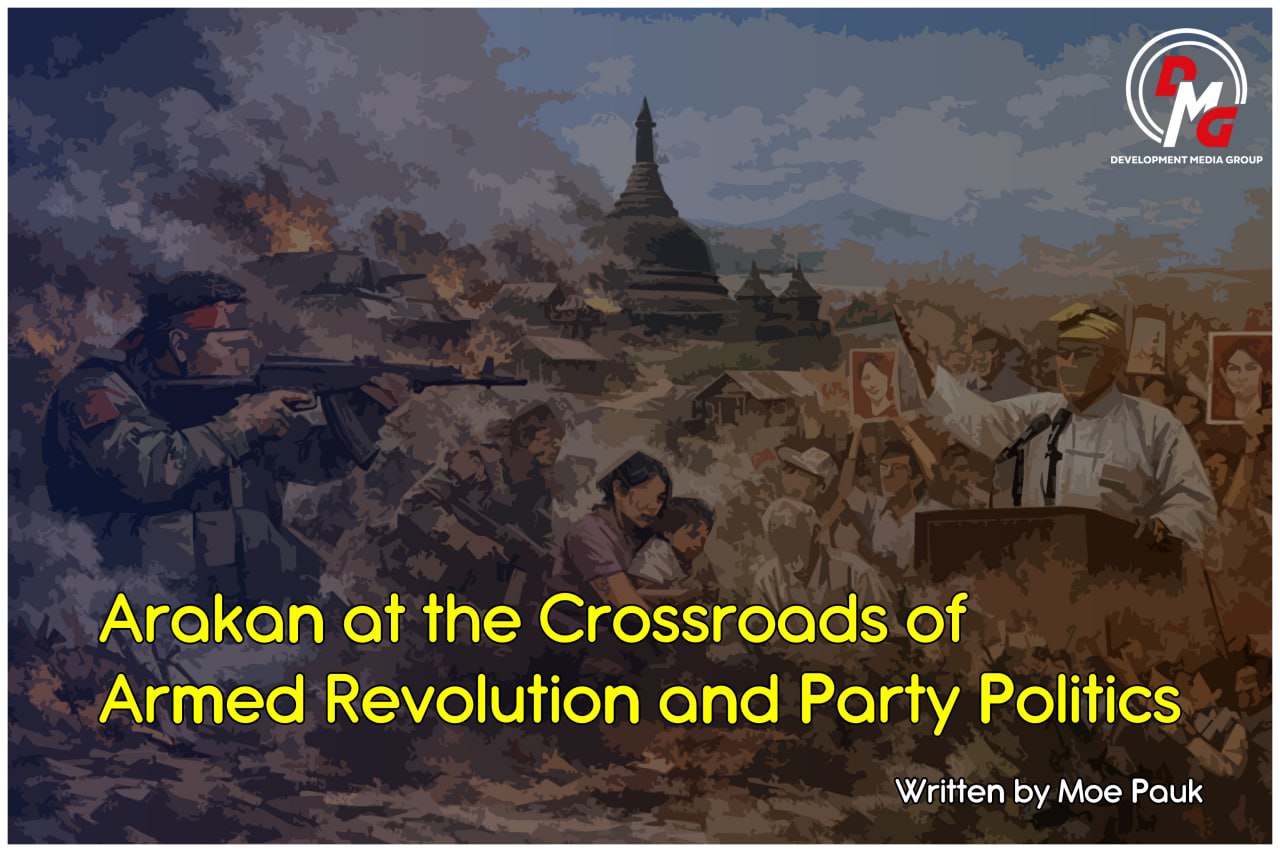- 15 mass casualty incidents from regime airstrikes reported in Arakan State since 2023
- Kyaukphyu IDPs forced to flee again amid junta airstrikes and artillery attacks
- New Diplomatic Movements Between Bangladesh’s New Government and the Arakan Public Administration
- Junta claims over 24 million ballots cast in 2025 poll, cites strong youth turnout
- ULA expands HIV prevention, healthcare services for sex workers in AA-held areas
On Arakan Front and Elsewhere, Junta Rains Death and Destruction From Above
Casualties have been reported in Mrauk-U, Minbya, Kyauktaw, Ponnagyun, Myebon and Ramree townships. Minbya Township has been hit hardest by the junta’s airstrikes in terms of civilian casualties.
21 Apr 2024
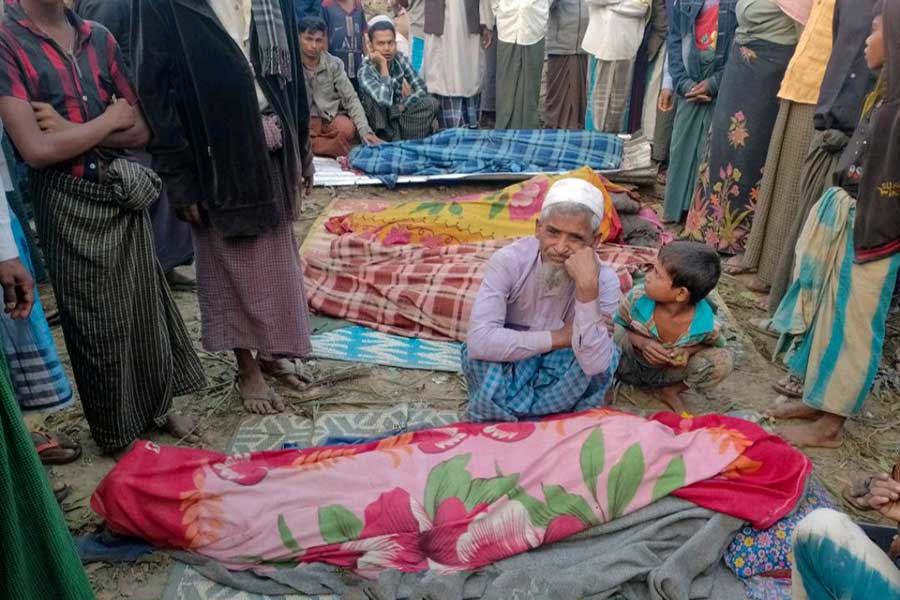
Written by Myat Swe
Losing large swaths of territory since the anti-regime “Operation 1027” offensive was launched in November of last year, Myanmar’s regime has been conducting daily airstrikes on areas controlled by ethnic armed organisations.
In so doing, the regime has been carrying out indiscriminate air attacks on residential areas. The regime carried out airstrikes a total of 979 days between its coup on February 1, 2021, and April 1, 2024 (a period covering 1,155 days), according to the Myanmar Peace Monitor of Burma News International.
More than 80 percent of the junta’s aerial bombing raids on civilian sites were targeted at rural villages across the country, said a Myanmar Peace Monitor report issued in late 2023.
Other targets included camps for internally displaced people (IDPs), healthcare facilities, urban wards, schools, religious buildings and businesses
Lieutenant Colonel Nay Lin Tun from Infantry Battalion No. 299, who was captured in fighting with the Arakha Army (AA) on January 28 in Minbya Township, witnessed a junta airstrike on a healthcare facility. The prisoner of war was injured in the January fighting, and was receiving treatment at Min Phu Hospital in Minbya when a junta jet bombed the hospital on February 26.
“The hospital you are seeing now has been providing healthcare services for military personnel who have surrendered their family members, seriously injured military personnel, and local residents who live near the hospital,” said Lt-Col Nay Lin Tun. “Residents from Muslim villages also seek treatment here. As you can see, the hospital was damaged by the powerful bombing raid on February 26. That the military council has carried out bombing raids on the place where civilians and surrendered military personnel are receiving medical treatment undermines the dignity of the Tatmadaw [Myanmar military].”
More than 50 civilians were killed and nearly 100 injured in junta airstrikes in March alone in Arakan State as the fighting intensified.
Casualties have been reported in Mrauk-U, Minbya, Kyauktaw, Ponnagyun, Myebon and Ramree townships. Minbya Township has been hit hardest by the junta’s airstrikes in terms of civilian casualties.
Twenty-one civilians were killed and some 30 injured when a junta jet bombed Thardar (Muslim) Village in Minbya Township at around 1 a.m. on March 18.
“Four houses were destroyed. So were the rice plants. And 21 people were killed,” said a villager.
The regime also carried out at least five air strikes on Mrauk-U, the former capital of the Arakanese Kingdom, in March. The town fell to the AA in February.
Bombing raids took place not only during the daytime but also at night, said a woman from Mrauk-U.
“We returned to Mrauk-U two weeks after we fled the fighting there. We stayed in our home in Mrauk-U town for two weeks. We dared not switch on the lights at night,” said the woman. “We heard flying drones around 2 a.m. on March 17. As I was crouching down, a warplane came and dropped bombs on Mrauk-U town. It also strafed. I was scared, and I hid near a wall.”
More than 30 civilians were killed or injured by junta airstrikes in Mrauk-U Township in March. Indiscriminate airstrikes also caused damage to houses, pagodas and religious buildings in the ancient city.
A resident of Ahtet Lay Nyin Taung Village in Mrauk-U said five people, including four children, were killed in a bombing raid on the village in March.
“The warplane came around 7:30 a.m.,” the resident said. “As soon as we heard the plane, it dropped bombs. Villagers had no time to hide. They were hit as they fled. Three houses were destroyed. In one house, a woman and her two children were killed. In another, a boy and a girl were killed. And many were seriously injured.”
Kanhtaunggyi town, and Sanyin, Nyaungkan and Thayetaung villages in Arakan State’s Myebon Township, also suffered from the junta’s air attacks last month.
A junta jet fighter dropped bombs on Kanhtaunggyi town four times, killing four civilians, injuring one other and reducing homes, healthcare facilities and schools to ashes.
“Junta artillery shells landed in Kanhtaunggyi town about 10 times,” said a local resident. “The junta carried out airstrikes on Kanhtaunggyi town four times. The junta shelling and airstrikes forced thousands of people in Kanhtaunggyi town to flee. Dozens of the grassroots remain in Kanhtaunggyi town. The regime airstrike on Kanhtaunggyi town on April 2 killed four civilians. Those trapped in Kanhtaunggyi town are afraid of the junta airstrikes.”
The resident added that the regime’s aerial bombardment of villages inhabited by civilians amounts to mass killing.
“As far as I know, the regime is violating the law 100 percent. The regime is mainly targeting the people. Now, no one can stop the regime from committing human rights violations. The regime only targets the people, so the people suffer. I’ve seen the regime massacring the people,” he added.
On April 4, the United Nations Human Rights Council urged member countries not to sell jet fuel to Myanmar due to the military regime’s excessive use of airstrikes capable of mass casualties. In addition, the UN Human Rights Council urged members to stop the sale of illegal weapons and military equipment to Myanmar.
The Independent Investigative Mechanism for Myanmar of the UN Human Rights Council has warned that the regime is increasingly committing violence against civilians as it is facing losses in battles.
U Pe Than, an Arakanese politician, said that international organisations should take action vis-a-vis the regime’s aerial attacks on civilians.
“The regime’s use of aeroplanes in the civil war is internationally reprehensible. Bombing and killing [civilians] in a civil war is something that should not happen,” he said.
The AA has so far seized nine townships in Arakan State and neighbouring Chin State. IDPs are unable to return home as the AA bans them from returning home due to the junta airstrikes on towns held by the ethnic armed group.
With death and destruction from above a constant concern for many people in Arakan State, it is hoped that the AA’s territorial gains might one day lead to clearer, less threatening skies.




